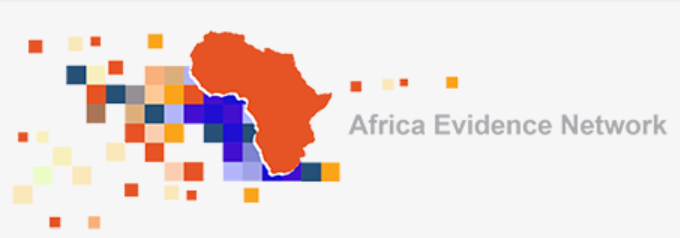
Africa Evidence Network Capacity in Africa Survey Report 2017
A Nobel prize-winning economist, Robert Lucas once said: “ONCE you start thinking about growth, it’s hard to think about anything else.” Borrowing from this bold statement, one can say the same about evidence-informed decision-making (EIDM). In an increasingly complex global system, the significance of EIDM in the public sector cannot be overemphasised and the concept has garnered importance, as it ought to have, in a number of African countries. Testimony to this is the increasing number of EIDM publications by African authors; the commissioning of evidence maps and evidence syntheses by African government departments; as well as EIDM training sessions being provided by collaborations between African universities.
At the beginning of 2017 (February – March), the Africa Evidence Network (AEN) conducted a survey and invited its members to participate. The survey initiative was born out of a realisation by AEN members that there is a growing interest in conducting – as well as capacity to conduct – evidence maps and syntheses across the African continent. In addition to this growing interest, there is a need to update the current best available research about systematic review capacity in low- and middle-income countries by Oliver and her colleagues (2015) (https://health-policy-systems.biomedcentral.com/articles/10.1186/s12961-015-0012-0). As such, the survey addresses the necessity of identifying current needs and support from the bottom up in evidence mapping and evidence synthesis capacity in Africa.
In total, 176 participants from 26 countries responded to the survey. Out of these, 90% were African-based participants across 18 countries. The majority of the respondents were from South Africa; evidence synthesis capacity, however, extends across Africa. About half (87/176) of the respondents reported having received training and mentoring in evidence maps and evidence syntheses that was supported by 100 different organisations; the bulk of these organisations being African institutions. This was matched by forty percent of respondents indicating that they offered support in the form of training and mentoring to others within Africa, most commonly in systematic reviewing.
In terms of barriers to capacity-building and systematic review production, a lack of funding was highlighted as the chief obstacle to African capacity in accessing and offering evidence synthesis training. Notably, funding was considered more prohibitive to accessing capacity support than to conducting evidence maps and evidence syntheses. In terms of facilitators to the production of evidence maps and evidence synthesis, capacity-building—including collaboration, networking, and mentoring—were highlighted as the as the greatest aid. Of the 161 responses to the question on whether respondents’ organisations provide any monetary support, twenty-one percent of respondents indicated that they receive some financial support for evidence maps and syntheses in the forms of staff time, publication costs, and funds for training from their organisations.
We also had a look at the overall institutional landscape on evidence mapping and synthesis in Africa. Seven organisations stand out as well-connected hubs for supporting or producing work using these methodologies:
- the Africa Centre for Evidence-University of Johannesburg, South Africa (ACE);
- the Centre for Evidence-Based Health Care-Stellenbosch University, South Africa (CEBHC);
- the South African Medical Research Council (SAMRC);
- Cochrane South Africa (CCSA);
- the Africa Center for Systematic Reviews and Knowledge Translation, Makerere University, Uganda (ACSRKT);
- Human Sciences Research Council, South Africa (HSRC); and
- South African national government Department: Planning, Monitoring and Evaluation (DPME).
With the exceptions of ACE, HSRC, and DPME who all work across sectors, the most well-connected organisations all work in the health field. The Uganda centre, ACSRKT, is the only non-South African organisation with this high a level of connectedness.
We are grateful to all the respondents to the survey and peer reviewers of our report. We welcome any inputs or feedback on our findings. The interpretation and implication of the survey data is an ongoing and collaborative exercise. The survey findings in themselves represent a significant shift in our understanding of African capacity for evidence syntheses. They inform tangible proposals of opportunities to support capacity in the future. An example is the need to fund capacity development as opposed to funding the production of systematic maps and reviews themselves. Further, it seems that investment at the team and institutional levels rather than funding individuals might provide greater returns.
In sum, the survey results highlight the small but growing capacity across the continent, as well as identify the hubs of expertise in a number of African countries. Further research is needed to understand how best isolated organisations might be empowered to join the overall network of organisations to access capacity hubs and existing expertise. Indeed as the AEN strapline states, “Only together can evidence-informed decision-making become a reality in Africa”.